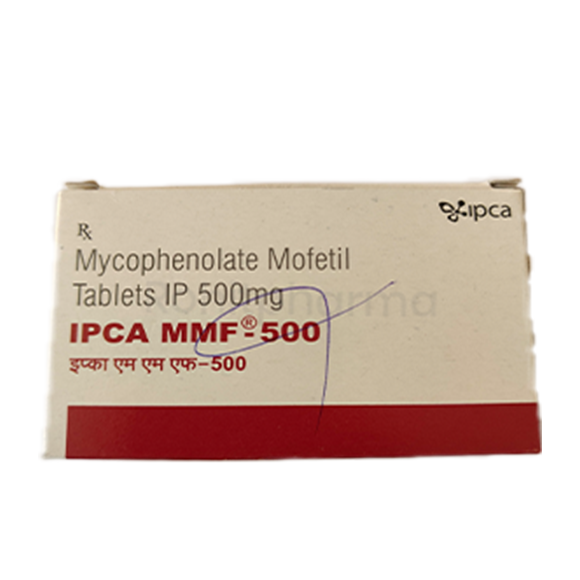Product Introduction
MMF 500 is a trusted immunosuppressant used primarily to prevent organ rejection following transplantation surgeries. By suppressing immune responses, it helps ensure the longevity of transplanted organs and minimizes complications.
This medication is an integral part of immunosuppressive therapy, particularly in combination with other agents such as corticosteroids and calcineurin inhibitors, to provide comprehensive protection against rejection episodes.
Uses of MMF 500
MMF 500 is primarily used for:

- Organ Transplantation – Prevents rejection of kidney, heart, or liver transplants.
- Autoimmune Diseases – Used off-label for conditions like lupus nephritis.
MMF 500 is a reliable option for maintaining transplant health and managing autoimmune conditions under medical guidance.
Side Effects of MMF 500
Common side effects of MMF 500 may include:
- Nausea
- Vomiting
- Diarrhea
- Abdominal pain
- Increased risk of infections
Less Common Side Effects
Less frequent but more serious side effects may include:
- Bone marrow suppression
- Severe gastrointestinal bleeding
- Hepatic dysfunction
- Increased risk of malignancies
We are pleased to offer you this product.
MMF 500 is a critical medication for transplant recipients. Always use this medication under strict medical supervision to ensure optimal outcomes.
- Take as prescribed by your healthcare provider, typically twice daily.
- Swallow tablets whole; do not crush or chew.
- Avoid skipping doses to maintain consistent immunosuppression.
MMF 500 inhibits the enzyme inosine monophosphate dehydrogenase, which is critical for the synthesis of guanosine nucleotides. This suppression reduces the proliferation of lymphocytes, helping to prevent transplant rejection.
- Reduces risk of organ rejection.
- Well-tolerated by most patients.
- Effective as part of combination immunosuppressive therapy.
- Regular monitoring of blood counts and liver function is advised.
- Avoid live vaccines during treatment.
- Consult your doctor immediately if signs of infection occur.

